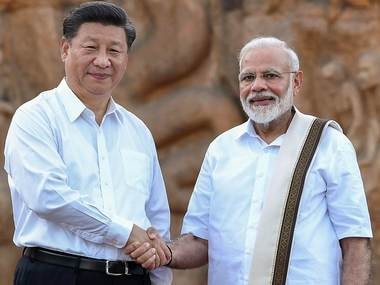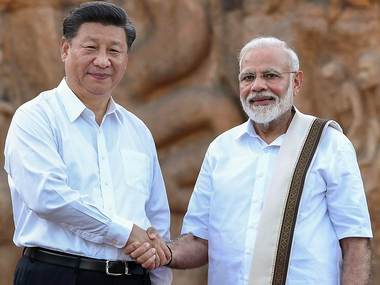The joint statement issued by China and Pakistan post Prime Minister Imran Khan’s visit to Beijing had a ring of irony to it. Referring to the ongoing, persistent and massive anti-government mass uprising in Hong Kong (reports have emerged of protesters calling on US President Donald Trump to ‘liberate’ them from Chinese Communist Party rule, Pakistan has expressed its deference to the ‘One China’ policy. The joint media release read: “Supporting One Country Two Systems, Pakistan reiterated that affairs of Hong Kong were China’s internal matter and all countries should uphold international law and basic norms of non-interference in internal affairs of other countries.” There’s no point harping on Pakistan’s hypocrisy. No integrity may be expected of a nation that fashions itself as ‘defender of Muslims worldwide’ even as its prime minister claims that he is “unaware” of neighbouring China forcing millions of Uighur Muslims into concentration camps to rid them of their religious identity.
We should instead focus on China’s reaction. Beijing stresses on ‘One China’ policy to stymie any discussion on Hong Kong or Taiwan, but has no problems in referring to Kashmir as a “dispute from history” and overriding India’s sovereign rights and concerns in calling for UN intervention. It is easy to condemn this behaviour since it doesn’t conform to any moral framework, but China’s moves are logical, and guided by the power principle. We should equally note that while China has gradually shifted its stand on Kashmir to now openly siding with Pakistan (a movement that predates India’s revocation of Kashmir’s special status and bifurcation on 5 August) and rubbing New Delhi repeatedly the wrong way, India has steadfastly refused to issue any statement on China’s ill-treatment of Muslim citizens or the ongoing uprising in Hong Kong. Clearly, there is difference in perception between the two nations when it comes to “being sensitive” to each other’s “core concerns” — one of the outcomes that emerged from last year’s informal summit at Wuhan. [caption id=“attachment_7486021” align=“alignleft” width=“380”]  Mamallapuram: Prime Minister Narendra Modi with Chinese president Xi Jinping, in Mamallapuram, Friday, PTI[/caption] In fact, media reports have emerged that India may “subtly” try to make this point to China as Prime Minister Narendra Modi meets visiting Chinese president Xi Jinping for the second informal summit in Chennai on Friday. One doubts that Mamallapuram, the UNESCO World Heritage site that is the venue for this edition, will throw up any different result even if India manages to tell China that it has failed to reciprocate the sensitivity that India has shown towards China’s core concerns. This is because while India has no leverage over China to force it to modify its behaviour, it remains wary of upsetting Beijing and apprehensive of its backlash. This makes for a fundamentally inequitable and disbalanced bilateral relationship. This disbalance stems from a power imbalance. Regardless of the number of bilateral meetings, levels of engagement (official, ministerial or highest leadership) and the format in which these take place (formal or informal), as long as India-China relation remains skewed due to a massive differential in power and heft, we may expect little or no deliverables from Wuhan or Mamallapuram. National University of Singapore director C Raja Mohan points to the discrepancy (China’s GDP is nearly five times larger than India’s and defence spending four times more) to write that “this power imbalance translates into an unpleasant fact on the diplomatic front. That China is under no pressure to please India. Or, more precisely, it can afford to displease India — whether it is the question of blocking India’s membership of the Nuclear Suppliers Group or opposing India’s Kashmir move and taking it to the UNSC. That did not change at Wuhan nor will it alter in a big way at Chennai.” More examples of this power imbalance altering the nature of relationship exists. India has been ultra-careful on the issue of Chinese telecom giant Huawei’s participation in 5G auctions. S Jaishankar, the minister for external affairs, has framed it as a “telecom issue”, not a “political one” chiefly to contain the geopolitical and security repercussions surrounding the topic but China’s approach has been blunt and brutal. Its officials have o penly warned India against omitting Huawei and have threatened punitive action against Indian companies operating in China. On the vexing border management issue, which has resisted a solution despite three decades of effort and 21 meeting mechanisms between the two nations, China’s obstinacy over delimitation procedure and salami-slicing of un-demarcated border along the Line of Actual Control is chiefly to blame. As Carnegie India director Rudra Chaudhuri wrote “serious movement on the border could be realised if Xi agreed to the formal clarification of the entire length of the boundary. This process started in the early 1990s, but there has been little progress to date. Essentially, China has been unyielding in this regard, and has blocked any attempt to even clarify or formally accept the exact location of the border.” China feels no pressing need to carry out delimitation of the undemarcated border where both sides have overlapping claims because it allows Beijing to carry out its altering of status quo, ‘salami-slicing’ and changing ‘facts-on-the-ground’ operations that is the hallmark of its expansionist territorial policy. And it can block India’s attempts to arrive at a solution because it can afford to do so. Given this fundamental power imbalance between the two nations, it is unclear what mechanisms such as the “informal meeting” that are aimed primarily at better mutual understanding. Gautam Bambawale, who was India’s ambassador to China during the Wuhan Summit, wrote in Outlook that Modi and Xi’s meeting in Mamallapuram is a continuation of “their conversation from their earlier Wuhan Informal Summit of April 2018 about what constitutes the China Dream and what are the contours of the New India that Modi espouses. This strategic communication will also cover each nation’s hopes, wishes, goals, strategies and assessments and help build greater trust and understanding between them.” It isn’t clear, however, how a better understanding of each other’s issues and concerns may work beyond a cosmetic change in ties when the balance is tiled heavily in China’s favour. India may hope that its silence on Uighur Muslims or Hong Kong protests will draw reciprocal action from China on Kashmir, but Beijing’s refusal to do so stems from its desire to use Pakistan as a tool to contain India’s rise, and unless India forces China to modify its behaviour through a leverage which it currently does not possess, China will not alter its policy. On the issue of trade, where India suffers from a massive imbalance with $57 billion in deficit vis-à-vis China, the issue again is less about market access (where China admittedly plays dirty) and more about India’s lack of competitiveness, capacity and composition of the trade. While China mainly exports manufactured items to India, it chiefly imports raw materials in return. While “some of the key sectors of the Indian economy are critically dependent on China, India’s top exports were mostly intermediate products and raw materials,” as a report in Hindu Business Line points out. Unless this structural deficiency is addressed by India, the trade will remain tilted in China’s favour. Mamallapuram, therefore, provides an occasion for India to be clear-headed about this power imbalance, and accordingly shape its strategy on China. This may include, as analysts have pointed out, increasing people-to-people ties (including exchange of students since India may provide cutting edge training in software and train Chinese students in English), developing industrial parks, and focusing on reducing the trade deficit by introducing labour reforms at home. China understands the language of power and defers to only the power principle. The sooner India gets its head wrapped around this truism, the better will it be for stability in ties.


)

)
)
)
)
)
)
)
)



